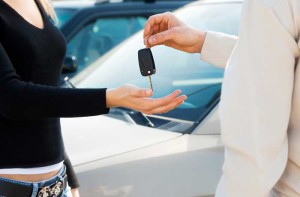Joel is an attorney living in Manhattan. He relies on public transportation to get around the city and occasionally rents a car, so he does not own one. When he goes back home for a visit, he will sometimes borrow one of his parents’ cars to go out or visit friends. He certainly does not plan on having a car accident when he’s driving, so the question of who will pay if one happens is far from his mind.
Liz lives in rural Maryland. She does own a small car for commuting to work. She also regularly borrows her father’s pickup truck because she owns a horse that she enters in nearby horse shows. She needs the truck to haul the horse trailer. Her father gave her a spare key to the truck in exchange for her paying for fuel and some of the maintenance costs. She also does not worry about accidents.
Joel does not have an auto insurance policy because he does not own a car. Liz has auto insurance on her own car. Does either person have insurance on the vehicles they’re borrowing? The answer: Some, but possibly not enough.
If Joel injures someone with his father’s car, his father’s insurance will cover him up to the amount of insurance purchased. If his father bought only the minimum amount required by state law, a serious accident could use up the insurance quickly. Joel would be liable for any amounts left unpaid after the insurance is used up.
 Liz has the same situation – her father’s insurance will protect her. Unfortunately, if an accident uses up all of his insurance, her policy will not help her. Most auto insurance policies do not cover someone while that person is using a vehicle that’s regularly available to her and is not listed on her policy.
Liz has the same situation – her father’s insurance will protect her. Unfortunately, if an accident uses up all of his insurance, her policy will not help her. Most auto insurance policies do not cover someone while that person is using a vehicle that’s regularly available to her and is not listed on her policy.
Also, both individuals are out of luck if their fathers forget to pay their insurance bills and their policies cancel. So, what should they do?
Joel should consider buying a named non-owner auto insurance policy. This is a type of auto liability insurance for people who do not own cars but who occasionally rent or borrow them. It covers the person for damages he may be responsible for because of injuries or property damage to someone else. The vehicle owner’s insurance pays first; the named non-owner policy will pay once the owner’s insurance is used up.
Liz needs something similar added to her own policy. Many insurance companies offer “extended non-owned coverage.” This coverage applies to vehicles the insured person does not own but to which she has regular access. With this coverage, if she injures someone with her father’s truck or damages their property, her insurance will apply once her father’s insurance is exhausted.
Both types of insurance can also cover medical expenses for occupants of the vehicles. The named non-owner policy can also cover Joel’s expenses if he is injured by an uninsured or underinsured driver.
The Andrew Agency
If you have questions about car insurance, named non-owner insurance or any other type of insurance, contact The Andrew Agency at 804.320.2886 or visit www.theandrewagency.com. The Andrew Agency is an independent insurance agency providing insurance solutions for clients in VA, MD, NC and SC.










